The Odyssey is an epic poem in ancient Greek literature attributed to Homer, and it tells the story of the Greek hero Odysseus and his ten-year journey home after the fall of Troy. It is widely regarded as one of the greatest works of Western literature and has inspired countless works of art and literature over the centuries.
The story begins after the end of the Trojan War, when Odysseus, the king of Ithaca, sets sail for home with his men. However, their journey home is not a smooth one, and they encounter many challenges along the way. The first stop on their journey is the island of Ismarus, where they pillage and plunder the city of the Cicones. However, they stay too long and are eventually driven away by the Cicones’ reinforcements, losing many men in the process.
Odysseus and his men sailed to the island of Ismarus, which was home to the Cicones, a group of people who were allies of the Trojans. Odysseus and his men attacked the city, pillaging and plundering everything in sight. They took many treasures and enslaved many of the Cicones.
However, Odysseus made a critical mistake by allowing his men to stay too long on the island, celebrating their victory and indulging in wine and food. This allowed the Cicones to regroup and call for reinforcements, which led to a counter-attack against Odysseus and his men. The Cicones managed to drive the Greeks back to their ships, and in the process, many of Odysseus’s men were killed or taken prisoner.
Odysseus himself managed to escape with his remaining men, but the loss of their comrades weighed heavily on them. The incident served as a warning of the dangers of greed and overconfidence, and it set the tone for the many challenges that lay ahead on their journey home.
Next, Odysseus and his crew sailed to the island of the Lotus-eaters. The Lotus-eaters were a peaceful people who subsisted on a plant called the lotus. Odysseus, being a curious and adventurous man, decided to send three of his men to explore the island and make contact with the locals.
The three men were welcomed by the Lotus-eaters and were offered some of the lotus to eat. The lotus had a sweet taste and was incredibly addictive. The men who ate it quickly forgot about their homes and their desire to return to them. They were content to stay on the island, eating the lotus and basking in the warm sun.
When the men didn’t return to the ship, Odysseus went to look for them. He found them in a trance-like state, blissfully eating the lotus. He had to use force to drag them back to the ship, tying them up if necessary. Eventually, Odysseus was able to get all of his men back on the ship and away from the island.
The incident with the Lotus-eaters served as another reminder of the dangers of complacency and addiction. It showed that even the sweetest of pleasures can be a trap, and that the desire to return home should always be stronger than any other temptation.
After their encounter with the Lotus-eaters, Odysseus and his crew continued their journey and arrived at the island of the Cyclops. The Cyclops were a race of giants with only one eye in the middle of their forehead. The crew found a cave on the island, and decided to explore it. They found it full of cheese and milk, but soon realized that it was the home of Polyphemus, one of the Cyclops.
Polyphemus, upon finding the intruders in his home, was enraged and captured Odysseus and his men. He blocked the entrance of the cave with a large boulder, trapping them inside. He then proceeded to eat some of Odysseus’s men, but spared Odysseus himself for last.
Odysseus, known for his cunning and quick thinking, devised a plan to escape. He offered Polyphemus some wine, which he had brought with him. Polyphemus, who had never tasted wine before, quickly became drunk and fell asleep. Odysseus and his men then took a large stake and sharpened it to a point. They blinded Polyphemus by stabbing him in the eye with the stake.
After Odysseus and his men blinded Polyphemus and escaped from his cave, they fled to their ship and sailed away. However, Polyphemus did not give up so easily. He cried out to the other Cyclops on the island, claiming that “Nobody” had hurt him. The other Cyclops did not believe him and thought that he was playing a trick on them, so they did not come to his aid.
The next morning, Polyphemus let his sheep out to graze, feeling their backs to ensure that the men did not escape by clinging to them. But the clever Odysseus and his men had already devised a plan to do just that. They had tied themselves underneath the sheep using ropes made from the branches of the trees on the island, and managed to escape the island undetected.
As they sailed away from the island, Odysseus could not resist taunting Polyphemus. He revealed his true name to Polyphemus and boasted of his victory, angering the Cyclops even more. Polyphemus hurled boulders at the ship, but Odysseus and his crew managed to escape by rowing with all their might.
The encounter with Polyphemus was a turning point in Odysseus’s journey. It showed his bravery, cunning and quick thinking, but also revealed his pride and hubris. Odysseus could not resist taunting Polyphemus, even though it put his crew in danger. It also showed that even the strongest and most powerful can be defeated by a clever strategy and a bit of luck. The story serves as a reminder of the power of wit and intelligence, but also the importance of humility and caution in the face of danger.
The encounter with Polyphemus was a lesson in the power of wit and intelligence. It showed that even in the face of overwhelming odds, a clever strategy and quick thinking can turn the tide of a seemingly impossible situation. It also served as a warning that one should always be cautious when entering into unknown territory, as danger could be lurking around every corner.
After escaping from Polyphemus, Odysseus and his men finally reach the island of Aeolus, the king of the winds. Aeolus welcomes Odysseus and his crew and offers them hospitality for a month. In return, he agrees to help them get back to Ithaca by providing them with a bag containing all the winds, except for the west wind, which would take them directly home.
Odysseus and his crew set sail with the favorable winds, but unfortunately, one of his men, driven by curiosity, opens the bag, thinking that it contains treasure, and releases all the winds, causing a storm that blows them back to Aeolus’s island.
When they return to Aeolus, Odysseus explains what happened and begs for his help once again, but Aeolus, believing that Odysseus and his crew are cursed by the gods, refuses to help them any further and sends them away, leaving them stranded on the island for several days.
This is a lesson in the dangers of temptation and the importance of self-control. Odysseus’s crew member could not resist the temptation of opening the bag and exploring its contents, leading to disaster. It is a reminder that sometimes what seems like a quick and easy solution can have unforeseen consequences.
After leaving the island of Aeolus, Odysseus and his men reach the island of the Laestrygonians. The Laestrygonians, who are giant cannibals, immediately attack them and destroy most of their ships. Only Odysseus’s ship manages to escape and reaches the island of Aeaea, where they encounter the sorceress Circe.
Circe, a beautiful and enchanting sorceress, invites them to her palace and offers them food and drink. However, she drugs their drinks and turns most of Odysseus’s men into pigs. When Odysseus discovers what has happened, he is determined to rescue his men and sets out to confront Circe.
With the help of the god Hermes, who gives him a powerful herb called moly to protect him from Circe’s spells, Odysseus is able to resist her enchantments and force her to turn his men back into human form. They spend a year on the island, enjoying Circe’s hospitality, before finally convincing her to allow them to leave.
This episode highlights the importance of trusting one’s own judgment and relying on one’s wits in difficult situations. Odysseus is able to resist Circe’s spells and rescue his men by using his intelligence, strength, and resourcefulness. It also emphasizes the power of temptation and the dangers of giving in to temptation, as Odysseus’s men fall prey to Circe’s charms and are turned into pigs.
Next, as they approach the Sirens’ island, Odysseus plugs his men’s ears with beeswax to prevent them from hearing the deadly song. However, he wants to hear it for himself, so he has his men tie him to the mast of the ship and give him strict orders not to be untied no matter how much he begs or pleads.
As they pass the Sirens’ island, Odysseus hears the enchanting song and begs his men to untie him, but they follow his previous instructions and refuse to do so. Thus, they successfully navigate past the Sirens’ island and avoid their deadly fate.
However, their troubles are not yet over. As they sail past Scylla, a six-headed sea monster who lives in a nearby cave, she reaches down and snatches six of Odysseus’s men from the ship, devouring them. Despite this loss, they continue on their journey.
After arriving in Ithaca, Odysseus disguises himself as a beggar and goes to the palace to assess the situation with the suitors. He finds that they are abusing his hospitality, wasting his resources, and pressuring his wife Penelope to marry one of them.
With the help of his son Telemachus, Odysseus hatches a plan to defeat the suitors. He reveals his true identity to his son, who then goes to the homes of loyal friends to gather support for their cause. Meanwhile, Odysseus makes himself known to a few trusted servants, who help him to arm himself and prepare for the upcoming battle.
During a feast in the palace, the suitors begin to taunt Odysseus, not realizing his true identity. He challenges them to a competition involving his old bow, which only he is able to string and fire accurately. After winning the competition, he reveals his true identity and, with the help of Telemachus, the servants, and the loyal friends who have joined their cause, proceeds to slay the suitors one by one.
Penelope is hesitant to believe that the beggar is actually her long-lost husband, so Odysseus reveals a secret that only they know: that he built their bed from a living olive tree, and it cannot be moved. Penelope finally accepts that Odysseus has returned, and they are joyfully reunited.
The story of Odysseus serves as a cautionary tale about the dangers of hubris, the importance of being faithful to one’s spouse, and the enduring nature of love and loyalty. It also shows the power of cleverness and resourcefulness, as Odysseus overcomes countless obstacles to return home and reclaim his rightful place as king of Ithaca.

![]()


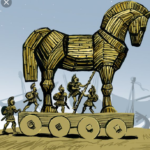


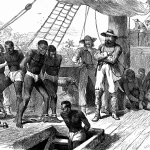
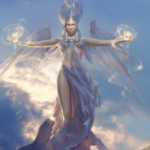
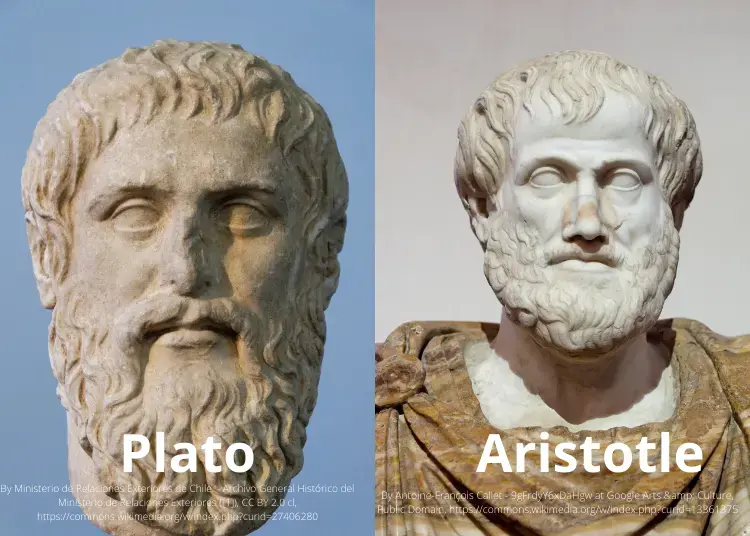
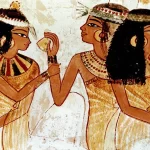








GIPHY App Key not set. Please check settings